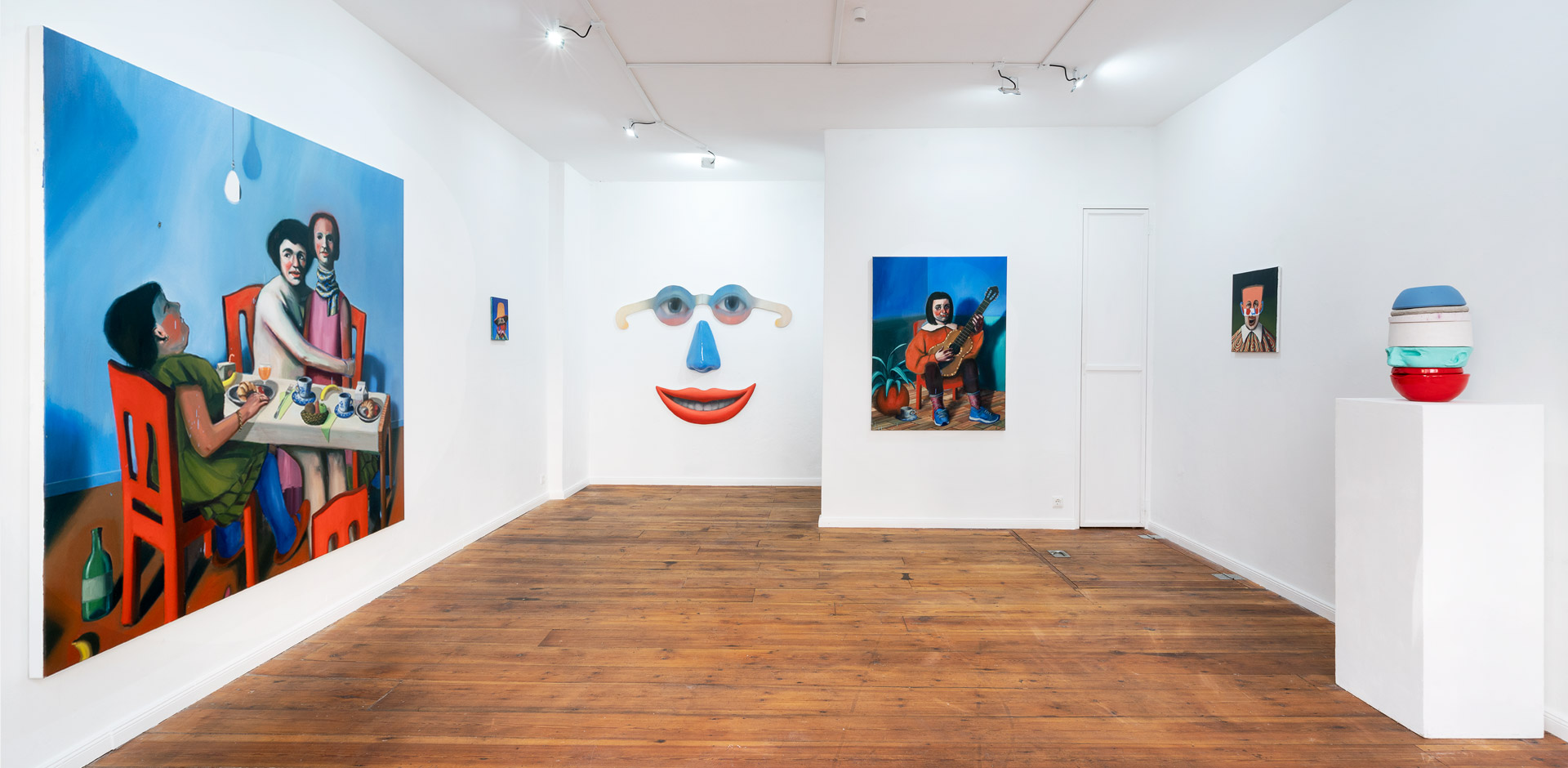Weserhalle is pleased to present the first Berlin exhibition of Chilean-Peruvian artist, Ivana de Vivanco, ‘THE BIG NOSE: A Matter of Perspective or Perspective Matters’. Like much of her previous work, this collection transforms the gallery into a deliriously experimental theatre, where all actors take the stage. Hallucinatory, dark, decadently colourful, and utterly compelling, de Vivanco’s characteristically whimsical canvases depict a host of unseemly players in order to reflect the absurdities (and artificialities) of the human-made world.
For this exhibition, de Vivanco has transgressed the boundaries of her chosen medium (painting) in order to explore the possibilities for a synthesis between picture and sculpture. Using the motif of the nose, and working with three dimensional objects made of coloured plaster, concrete, and resin, de Vivanco wrests the flatness of the painted surface into the tangible space of the gallery in what she envisions as the crossing of an invisible boundary between the represented and the real. With her tongue in her cheek, she muses that if one were to cross that imagined divide, the first appendage to emerge into physical space might be the nose.
In her painting, de Vivanco makes countless references to art history: the black despair of Goya, the frightening contortions of Bacon, religious iconography, Renaissance drama, ancient myth. Her characters are just as variegated, painted in jester’s checks, smoking jackets, linen scarves, and wide-brimmed hats. Still other figures are rendered nude—a common trait of the artist’s work—and yet all wear masks of either stoic neutrality or theatrically twisted emotion; they are at once vulnerable and performing.
As THE BIG NOSE makes clear, the theatrics of the human world are a matter of perspective. Just as the nose on one’s face is always in view, yet hidden in plain sight, the decadence of modern society is both obvious and obscure. De Vivanco recalls the Baroque theatre of Calderón de la Barca—the Spanish dramatist whose genre of theatre portrayed life as a farce, and everyone the hypocrite—when she insists that this humour is perhaps more relevant today than ever before. We, the protagonists of our time, are constantly (and compulsively) changing identities, responding to excess by donning frightful masks. And yet despite the deeply sinister overtones of her work, by de Vivanco’s estimation, perspective matters.
